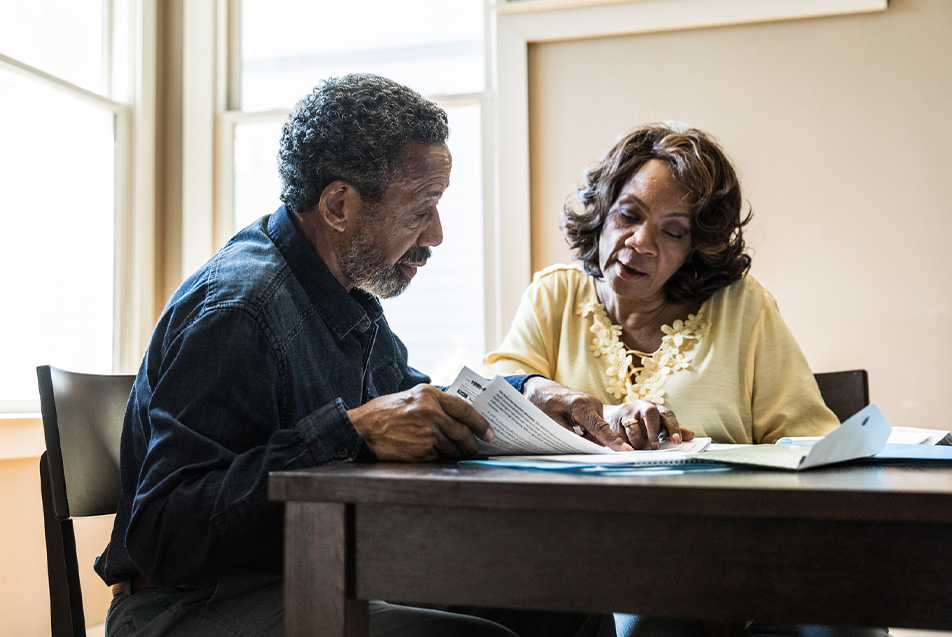
National Healthcare Decisions Day highlights the importance of having advance care planning (ACP) conversations. These discussions help to ensure that the healthcare treatment you receive is consistent with your wishes, particularly when you are unable to make these preferences known during a medical crisis. Chris Brinneman, MSW, LCSW, manager, Advance Care Planning, Parkview Health, sat down with Kevin Babb, who recently went through the ACP process, to discuss his experience.
How did you learn about advance care planning?
I learned about ACP when my parents created advance directives when I was in my late twenties. My mother had a stroke only a few years later, and I thought everything would be OK since they had everything in writing. I assumed that the nursing home where she was a resident was aware of her directives. Later, as my mother’s health declined, I felt her wishes were not initially honored because my parents had not continued to talk about what my mother’s wishes were.
Mom had the living will, but had not specified a healthcare representative. At the time, Indiana law listed several classes of people who could make medical decisions but did not rank them. I was not aware of the ambiguities in the law and assumed that direction would come from my father. I don’t think that was initially the case and, I feel, decisions were made that contradicted what I feel were my mother’s wishes.
What was your personal motivation to have an ACP conversation?
My motivation stemmed from seeing my mother’s health decline with no hope of recovery, while having staff talk us into care that only extended my mom’s life with no consideration for its quality. My late wife, Linda, had a subarachnoid hemorrhage when she was in her early 40s, and I remember driving her to the hospital and her commenting, “Don’t let me end up like your mom.” Because of my mom’s situation, we talked about what might happen to her. Linda didn’t want to be institutionalized and non-responsive and have our family watch her slowly wither away as we had seen with my mom’s case.
What surprised you during your ACP conversation?
I realized that the legal documents are only a small part of the conversation. Even though Linda did not have legal documents in place, I knew what her wishes were. She made it known to me and everyone close to her. I think you must really empower your decision makers to speak on your behalf. I have told my kids not to be afraid to say “no” to treatments if they believe it is what I would have said.
What do you feel are the benefits of having an ACP conversation?
Clarifying all those questions about your wishes. I was relieved that I had had conversations with my wife during her cancer treatments so that after her second stroke I knew, by only a gesture, what path she had decided on for her treatment. She lost her ability to speak from the stroke, and I had to advocate on her behalf for that path.
Why should others have an ACP conversation?
Because we never know what might happen to us. I didn’t expect the health situations that my wife had in her life. We had a scare with her brain bleed, and when she was diagnosed with cancer only a few years later, we still had only talked briefly about her healthcare wishes.
Linda didn’t want to get to a physical state where there was no quality to her life and be burdensome to myself or our children. When she was diagnosed with stage 4 breast cancer, we talked extensively about what she wanted for treatment. Paraphrasing her words, “While there is hope, let’s do all the treatments that are available. But if there isn’t any, I want quality of life first, not just quantity.” I’ve since had similar conversations with my children about my wishes for end-of life-treatments.
What is the next step after having an ACP conversation?
You could choose the path I took and have an attorney create legal documents. You can find some documents, including a Living Will and Appointment of a Healthcare Representative on Parkview’s website. I finally had my advance care directives done when I rewrote my will after Linda died. Indiana law was changed recently to be clearer on who has the right to make decisions for incapacitated people, and it is better than it used to be. But why leave it to chance or create family strife?
Can you change your plan?
Yes. I currently have my two adult children listed as my POA and Healthcare Representative, but I am planning to get married again next year. That will change things. I was told by my attorney when the documents were signed, that I would need to change my directives if I decided to remarry. Life situations change, and we have to change with them.
Any final thoughts on the ACP process?
I am happy that I had conversations with Linda about what things were important in her medical treatment. Was it hard? You bet! But I am certain that I made the choices she wanted me to make.
I think talking about advance care planning is like having a conversation about a family budget. Some people are more comfortable talking about it than others. But it is a conversation we all need to have. None of us want to believe that we will be in a position where someone will have to make healthcare decisions for us. These decisions are deeply personal and may not be easy. I’m glad I knew my wife’s wishes, and I am hopeful that my loved ones know mine.
Learn more
If you would like to have your own cost-free advance care planning session with a certified ACP facilitator, contact Chris Brinneman, ACP Manager, at 260-266-1471 or email acpdept@parkview.com.